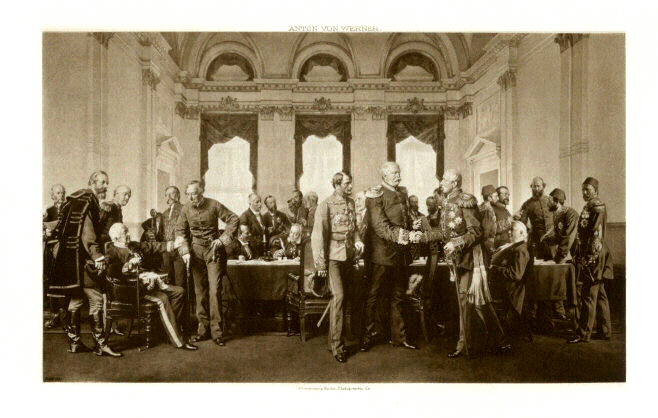|
Congo, Ethiopia, Nigeria,
Sudan, Zimbabwe, …
YOU have been assigned to use your skills, knowledge, and experience to seek
creative solutions to historical and modern global conflicts and establish a
secure foundation for the future of Africa in the Pine Crest Model United
Nations and Model Berlin Conference.
But
how does a Model Untied Nations work? First, a Model United Nations or Berlin
Conference begins with the presentation of a set of issues to be discussed. Next,
delegates select a country to represent at the conference. Each delegate then
prepares a document presenting the position of the assigned county on the
issues, and makes an oral presentation of those issues using the established
rules of debate and procedure. The delegates then attempt to come to an
agreement about the issue through debate and negotiation. Once an agreement is
reached by a majority of the conference, a resolution is passed representing the
policy statement of the body as a whole. It’s simple: Role-playing, Research,
Rules, and Resolutions. |
|
PURPOSE This simulation will recreate the Berlin Conference of 1884-1885, and will allow students the opportunity to practice their research, negotiation, and conflict resolution skills in an historical setting. The major purposes of this simulation are:
|
COUNTRIES YOU CAN REPRESENT: Even through the actual Berlin Conference consisted of fourteen countries (Austria-Hungary, Belgium, Denmark, France, Germany, Great Britain, Italy, the Netherlands, Portugal, Russia, Spain, Sweden-Norway, Turkey, and the United States of America) - not one country from the continent of Africa was represented! For the purpose of this simulation, you are representing a delegation of a modern African country that has magically been transported back to the time of the Berlin Conference. In fact, the only other countries that you will be working with (and against) will be from the continent of Africa. It is up to all of you to establish new boundaries, taking into consideration the local languages, cultures, religions, physical landscapes, and so on. The countries for THIS simulation are as follows: Algeria, Angola, The Congo, Egypt, Ethiopia, Guinea, Ivory Coast, Kenya, Nigeria, Rwanda, South Africa, Tanzania, and Zambia. |
|
Each Delegation
will be responsible for researching and writing a short position paper and
resolution on the
issues involved from the point of view of the assigned country.
Both Participation and Position papers will be graded at the discretion
of the teacher. |
